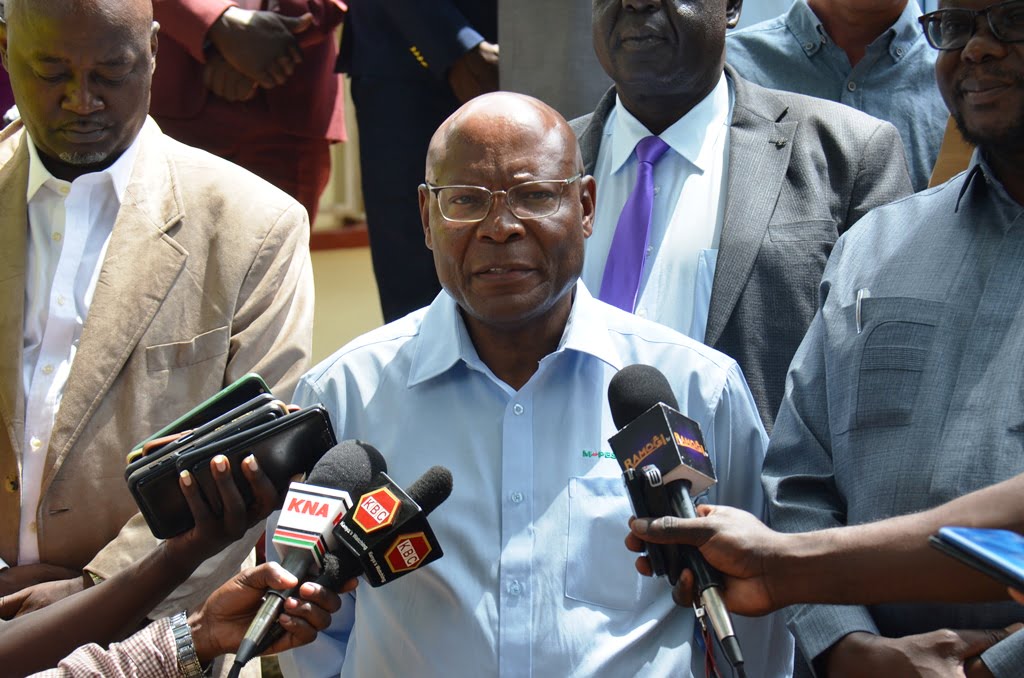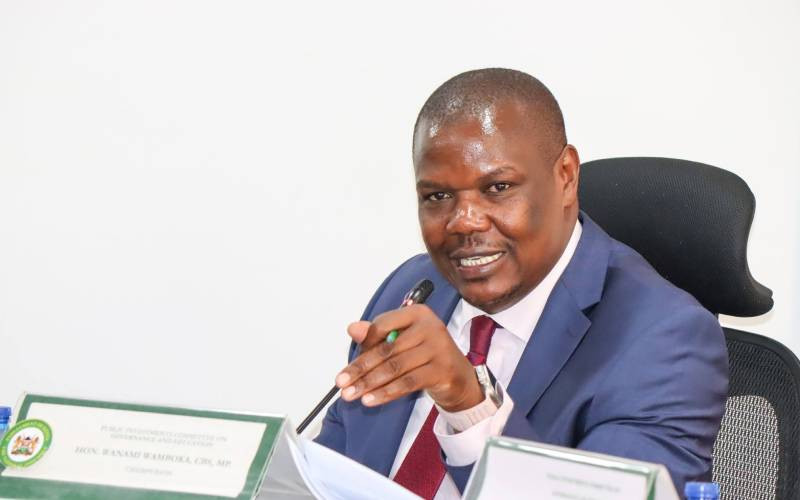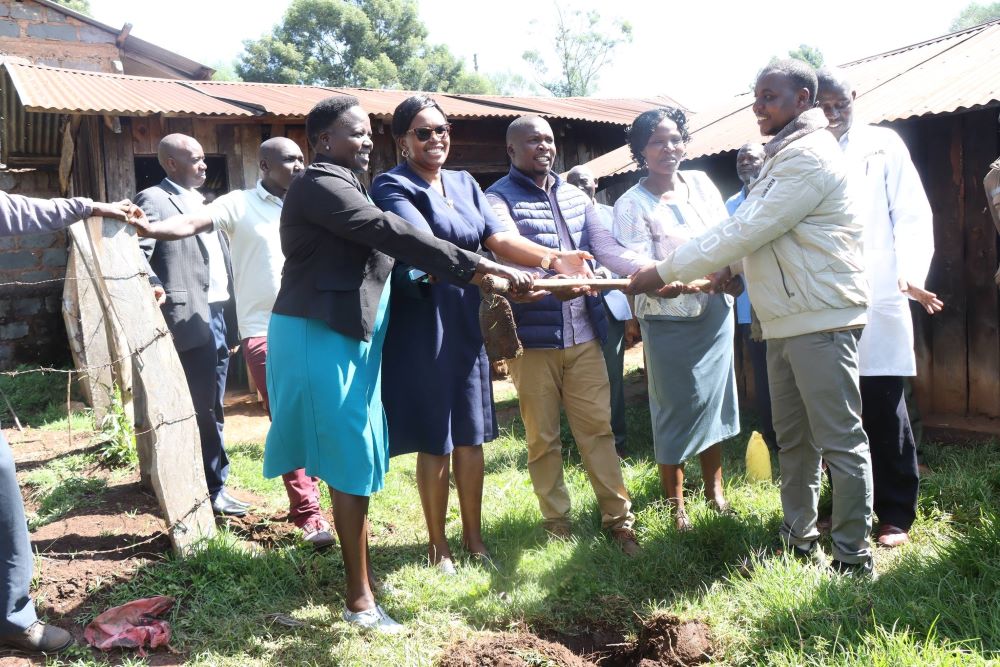In recent years, the Kenyan teaching profession has witnessed a marked shift in advocacy and support structures for educators, particularly with the emergence and strengthening of the Kenya Women Teachers Association (KEWOTA). KEWOTA has been instrumental in championing the rights, welfare and empowerment of female teachers, ensuring that their voices are heard in matters affecting their profession and personal development. This effort has borne fruit – women teachers today have more platforms to articulate their needs, share experiences and benefit from targeted mentorship, training, and advocacy programs. The empowerment of girl children continues to flourish at the expense of their counterpart, the boy child.
While this is a commendable milestone for gender inclusivity, it has inadvertently highlighted a growing gap: male teachers appear to lack an equivalent platform dedicated to their specific needs and challenges. This absence of a dedicated advocacy body leaves a significant portion of the teaching workforce without a unified voice to address professional, social, and even psychological issues that uniquely affect them. It is high time that male teachers organised themselves into an umbrella body – perhaps aptly named the Kenya Male Teachers Association (KEMATA) — to balance the scales, rival KEWOTA in influence, and complement its role by addressing male-specific concerns.
The teaching profession, like any other, is not immune to gender-specific challenges. Male teachers face unique pressures that often go unaddressed in mainstream teachers’ unions or general welfare bodies. Issues such as accusations of misconduct in interactions with learners, lack of targeted mentorship for career advancement, stereotypes about male teachers in lower primary or early childhood education, and insufficient focus on men’s mental health are real and pressing.
Furthermore, there are societal expectations and pressures that weigh heavily on male teachers. In many communities, men are still viewed as primary breadwinners, and the economic realities of a teacher’s salary – especially when pitted against rising costs of living – place male teachers in difficult financial situations. Without a platform to address these concerns, many resort to silent struggles, often leading to burnout, poor performance, or even premature exit from the profession.
KEWOTA’s success provides a clear blueprint for how KEMATA could operate. Through capacity-building programs, KEWOTA has empowered women teachers to take up leadership positions, improve their financial literacy, and enhance their professional skills. They have advocated for policies that protect and support women in the workplace, especially in relation to maternity rights, gender-based violence, and professional advancement.
KEMATA could adopt a similar approach, focusing on the male perspective. Programs on financial management, investment opportunities, mental health awareness, and leadership development could be tailored for male teachers. Advocacy could be geared towards ensuring fair representation of male teachers in school leadership, protecting their rights when facing disciplinary processes, and championing for equitable training opportunities.
One of the most urgent areas KEMATA could address is professional ethics. The teaching profession has in recent years faced numerous scandals involving inappropriate conduct – some founded, others exaggerated or unsubstantiated. Male teachers are particularly vulnerable to reputational damage due to societal stereotypes. In such cases, the absence of a dedicated body to offer legal, psychological and professional support leaves them exposed and demoralized.
KEMATA could serve as a watchdog and guardian, sensitizing male teachers on the importance of maintaining the highest professional standards, navigating complex student-teacher boundaries, and handling sensitive situations without compromising their integrity. By championing ethical conduct, KEMATA would not only protect its members but also restore and enhance public trust in male educators.
Another critical area where KEMATA could make a difference is in mentorship. Many young male teachers enter the profession without clear guidance on career progression, work-life balance, and personal development. An association could pair experienced male educators with newcomers, providing practical advice, moral support and encouragement to pursue leadership roles.
Moreover, in a society grappling with absentee fathers and diminishing male role models, male teachers play an increasingly important role in shaping boys’ character, discipline, and aspirations. A strong KEMATA could promote programs that position male teachers as community leaders and mentors, positively influencing the next generation.
Men’s mental health remains one of the least addressed issues in Kenyan workplaces, and the teaching sector is no exception. Cultural norms often discourage men from expressing vulnerability or seeking help, leading to suppressed emotions, depression, and even substance abuse. The pressures of meeting professional targets, handling disciplinary challenges and supporting families financially can take a toll.
READ ALSO:
Dr. Ondari urges mentorship and better facilities for aspiring medics in Kisii
KEMATA could normalize conversations about mental health among male teachers, organize counseling services, and establish wellness programs that encourage healthy lifestyles. These initiatives would help reduce burnout, improve job satisfaction and enhance overall productivity.
Beyond welfare, KEMATA could become a formidable policy advocacy body. While mainstream teacher unions address broad issues such as pay, workload, and promotions, they may overlook gender-specific concerns. KEMATA could ensure male teachers’ perspectives are included in policy discussions on promotions, transfers, training, and disciplinary frameworks. This would ensure that no gender feels marginalized in decision-making processes.
It is important to clarify that forming KEMATA should not be viewed as an act of antagonism towards KEWOTA or any other teacher body. Instead, it would be a complementary step toward holistic representation in the teaching profession. Both male and female teachers face unique challenges, and having gender-specific associations allows for targeted, effective solutions. Collaboration between KEMATA and KEWOTA could yield joint programs on professional development, ethics, and community outreach – strengthening the teaching fraternity as a whole.
The Kenyan teaching profession thrives when all its members feels seen, supported, valued and empowered. KEWOTA has demonstrated the immense value of organized advocacy and targeted empowerment for female teachers. Now, male teachers must rise to the occasion and establish a similar body—KEMATA—that will rally their voices, address their challenges, and champion professional ethics.
Such an association would not only safeguard male teachers’ welfare but also enrich the profession with more balanced representation, healthier workplaces, and stronger role models for learners. The time for KEMATA is now; the cost of inaction is leaving half the teaching workforce without a voice in their own professional destiny.
By Ashford Kimani
Ashford teaches English and Literature in Gatundu North Sub County and serves as Dean of Studies.
You can also follow our social media pages on Twitter: Education News KE and Facebook: Education News Newspaper for timely updates.
>>> Click here to stay up-to-date with trending regional stories
>>> Click here to read more informed opinions on the country’s education landscape
>>> Click here to stay ahead with the latest national news.






